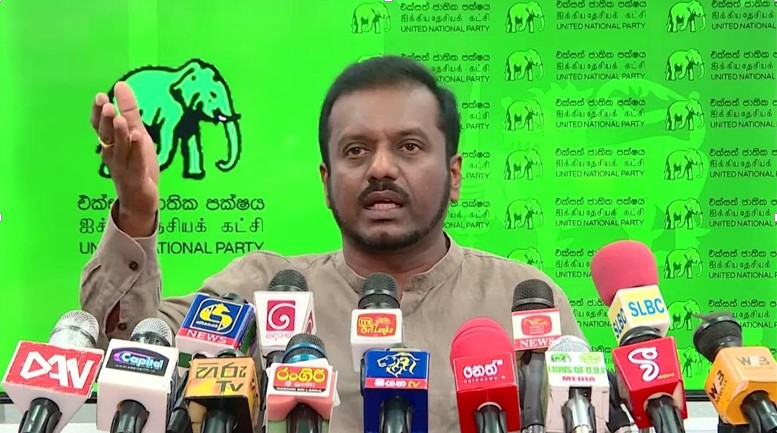UNP Questions Government's Secret Agreements with India Over Land and Dockyard Deals
02-Aug-2025.

The United National Party (UNP) has questioned the Sri Lankan government on its recent land sales and agreements with India, alleging a contradiction in its policies.
While the current administration came to power claiming it would not sell the country’s resources to foreign nations, it has now reportedly sold agricultural lands in Muthunagar, Trincomalee, to an Indian company.
Additionally, efforts are underway to hand over a dockyard facility to India.
Former Member of Parliament Saman Rathnapriya of the UNP raised these concerns during a press conference held on July 31, at former President Ranil Wickremesinghe’s office in Colombo.
Rathnapriya stated that since assuming office, President Anura Kumara Dissanayake has made official visits to six countries and signed various agreements. However, none of these agreements have been disclosed to the public. In particular, the agreements made with India remain undisclosed, raising suspicion about whether these dealings include terms detrimental to the nation.
He further pointed out that lands cultivated by local farmers in Trincomalee for decades are now being taken and handed over to an Indian company, triggering protests from the affected communities. Likewise, the proposed handover of a dockyard to an Indian firm raises further doubts about the basis and transparency of these actions.
Rathnapriya contrasted this with the practice under Ranil Wickremesinghe’s leadership, where any foreign visit was followed by a briefing on the outcomes and benefits to the country. In contrast, after President Dissanayake’s six foreign visits, the public remains uninformed of any national gains.
Despite pledging to boost local production and rebuild the economy, the current administration has failed to supply farmers with essential fertilizers on time, particularly affecting rice cultivation.
As a result, domestic production has declined, yet the government appears more interested in importing goods like rice and sugar—reportedly profiting from such imports while neglecting local industries like the Sevangala sugar factory, which is now in decline.







